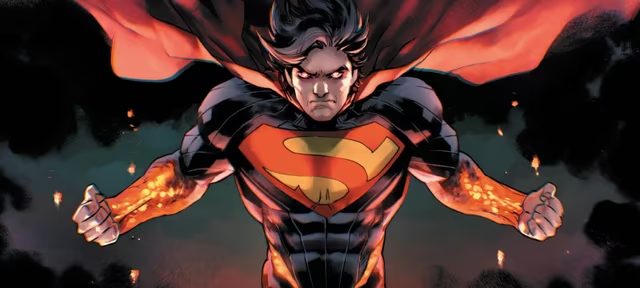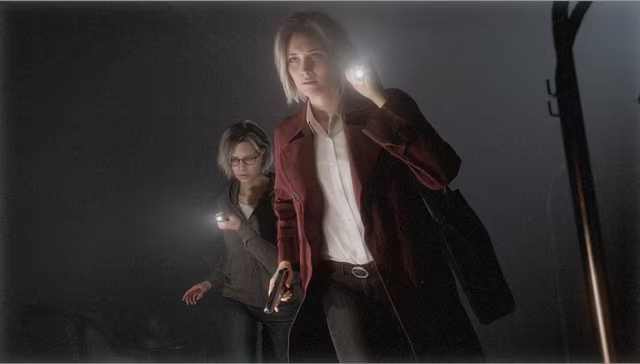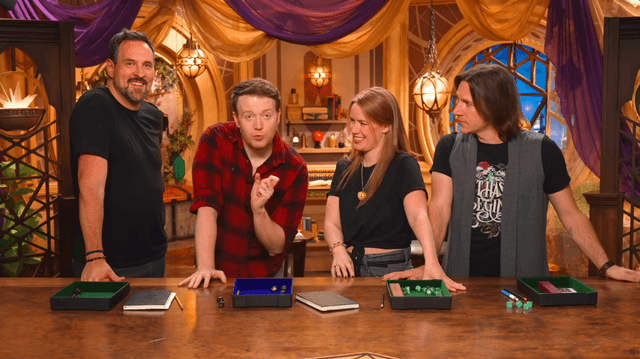If you click on a link and make a purchase we may receive a small commission. Read our editorial policy.
Netflix's The Witcher: What are Ciri’s powers, and what is her destiny?
After almost three full seasons of the Witcher, here's what we know about Ciri's powers, their source, and her destiny

Over the course of the last three seasons of Netflix's hit show The Witcher (based on the books by Andrzej Sapkowski), we’ve seen a fair amount of Ciri using special powers, and heard an awful lot more about what she’s capable of (including either the destruction or salvation of the world, depending on who you’re talking to).
But halfway through the third season, there’s still a lot of pieces to put together about who Ciri is, what she can do, and what her destiny is.
Here’s what we can say so far.
What are Ciri’s powers in the Witcher?

Like her mother Pavetta and many other women of her ancestral line, Ciri has the ability to access an incredible amount of power, and in a growing variety of ways. When we first meet her in the pilot, her scream has the capacity to literally throw people a great distance, as she does with the Nilfgaardian knight Cahir when he attempts to abduct her.
When frightened Ciri can also create a blast similar but stronger to that which her mother set upon the court of Cintra, as she does in episode 107 when friends from Cintra attempt to seize her so as to sell her to Nilfgaard, killing everything in a large radius.

Ciri also seems to have a sixth sense that draws her at times, whether into the Brokilon forest of the dryads, where Shan-Kayan, the central tree of the forest, speaks to her in a vision; or in season two, when she knows instinctively which way to go in order to find the monsters outside the Witchers’ keep Kaer Morhen.
But as the seasons have gone on she’s slowly learned that her most fundamental power is the ability to somehow create passages between the spheres (what we would call dimensions or worlds). In the pilot when she throws Cahir off, she also accidentally levels a monolith—massive black stone formations throughout the planet that are places of great power, through which some are able to travel between spheres. With its destruction she also creates a massive crack in the ground that we learn in season two is somehow occasionally a passage to another such sphere.

At the end of the second season Ciri similarly creates a portal through which she, Geralt and Yennefer travel to a desert-like world in which they encounter a group of seven spectral riders known as the Wild Hunt who want her to join them. But before they can get to her she transports the three of them back to their own world.
Once opened, Ciri’s portals seem to remain open. In the second season monsters occasionally emerge from the crack she created in season one and search her out, seemingly to kill her. And in 303, the Wild Hunt chases her again, but this time in her world. After Geralt dispels them with his magic, the two discover a piece of one of the knights’ armor on the ground. This wasn’t an illusion or vision, Geralt posits; when Ciri created a portal to their universe she gave them the means to travel back to hers.
Where did Ciri get her powers?

The question of where Ciri’s powers come from has a number of potential answers.
First, there is the biological or genetic explanation. In episode 204 Vesemir, mentor to and most experienced of all the Witchers, discovers brilliant purple flowers growing along the path of the Witchers’ training course. Known as Feainnewedd, these flowers only appear where the ground has been touched by Elder blood, an extraordinarily rare Elven blood that grants its holders access to incredible magical power.
Given its presence on the training course where Ciri has been practicing, Vesemir deduces that Ciri in fact has Elder blood. This blood is a key element in the potions used to create Witchers; with Ciri’s permission and the help of the sorceress Triss Merigold, Vesemir successfully recreates that potion, confirming that indeed Ciri has Elder blood.
There’s also a genealogical answer to why Ciri would have such power. In episode 205, Ciri agrees to undertake the Dol Durza (aka the Valley of the Soul), a spell by which she and Triss are able to journey back through the layers of not only Ciri’s consciousness but her ancestry for answers about her identity. At the end of that journey they find themselves in a ruined wasteland, where an Elven woman in a yellow dress sings to her baby while she bleeds to death.

This woman, they discover, is Lara Dorren, an ancient Elven sorceress who fell in love with the human mage Cregannan after the Conjunction of the Spheres brought their people together. Their daughter, she says, “could have united our races.” But the humans condemned their union, and staged an attack upon them while Lara was pregnant, killing Cregannan. Lara would die soon after, leaving her daughter an orphan “who will destroy them.”
As Lara lays there, all around her bloom blossoms of Feainnewedd from the drops of her blood that have fallen on the ground. She has Elder blood, and she says that a descendant of hers will be the instrument of her revenge: “The world will die amidst frost and be reborn with the new sun. It will be reborn of Elder Blood, of Hen Ichaer, of the seed that has been sown. A seed which will not sprout but burst into flame.”
Lara addresses Ciri as “Child of Elder blood,” making explicit the connection between the two of them. So a second answer as to the origin of Ciri’s powers would be the fact that she is a direct descendant of Lara Dorren.
There’s a third answer as well. A major part of the mythology of the books is that there are moments of destiny when unusual and powerful forces coincide to create massive long-term impacts.
The Law of Surprise is one such vehicle for destiny. Children who are taken into the life of another by way of the Law of Surprise are often unusually powerful, we are told, because the forces of destiny which that promise creates themselves create a sort of nexus of power. In the books reference is made to children who become witchers being taken in as a result of the Law of Surprise. The lives of Pavetta and Ciri, too, exist entirely under that promise.
What are the prophesies surrounding Ciri in the Witcher? What is Ciri’s destiny?

Throughout the Witcher series, Ciri hears prophesies about her destiny. Most of them suggest she is an apocalyptic figure who is going to destroy the world.
Many of these prophesies occur within the context of visions that Ciri has. So in episode 204, when Ciri touches dust coating two different monsters that had attacked her, she suddenly finds herself on a desert plain on a planet with three suns, standing before a monolith. And she watches herself issue this prophesy: “Daughter of Chaos belongs to us. Turn your backs. Join the procession. There is only death here."
In season one, too, when the Cintrans are moving to grab her, she suddenly issues a prophesy in a voice that is not her own. While it doesn’t speak specifically of her, it definitely describes a coming time of devastation: “Verily I say unto you,” the vision of her says, “the era of the sword and axe is nigh, the era of the wolf's blizzard. The Time of the White Chill and the White Light is nigh, the Time of Madness and the Time of Contempt.”

On the three occasions when Ciri meets the Wild Hunt, they, too, suggest that she is a force of doom for the universe. In the first she sees them coming toward from the skies after Lara Dorren has prophesied about a seed of Elder blood who will burst into flame. In episode 208, when Ciri transports Geralt and Yennefer to another sphere, the leader of the Wild Hunt which races toward them says to her, “Child of the elder blood, starry eyed daughter of chaos, join our hunt,” says their leader in episode 208. “Your place is among us. You are ours.” And in episode 303, he makes his belief as to her destiny even clearer, saying “Yes, we are corpses, but you are death itself. Join us.”
In episode 206 the mage Istredd learns from the detectives Codringher and Fenn that ancient Elven scrolls had been mistranslated as having talked about a “weapon” built to destroy the humans. In fact the proper translation was not weapon but “warrior.” The detectives also enumerated Lara Dorren’s curse upon humanity, which suggests Ciri might be their doom: “My curse will hound your descendants until the 10th generation, until the columns of time and space tremble and open for my people, then my vengeance will be born again.”

Even Triss, who spends a good portion of season two trying to help Ciri, in the end concludes that she is a force of ultimate destruction. In episode 205, after the two of them travel through her consciousness as a result of the Valley of the Soul spell, Triss concludes that Ciri is the weapon of which Lara Dorren speaks. “You are the seed that bursts into flame,” she tells Ciri. “You will destroy us all.”
Having said that, not everyone feels the same way about Ciri. Having learned from Istredd in episode 208 that Ciri has Elder blood, the Elven leader Francesa Findalbair comes to believe that Ciri is the intended vehicle of their salvation that Lara Dorren promised, and spends the first part of season three trying to capture Ciri so as to protect her.
Meanwhile, having learnt of what Triss discovered, the sorcerer Vilgefortz tells his love Tissaia in episode 207, “If what she says is true, this child has the potential to end all war forever.” Ciri’s father the Nilfgaardian emperor Emhyr van Emreis likewise believes that Ciri is the key to his plan to take over and unite the continent; in episode 106 the Nilfgaardian sorceress Fringilla Vigo says much the same.

But what exactly gives them reason to believe this to be true is unclear. Did the prophesy about Ciri that Emhyr-as-Duny learned from Pavetta long ago have some element that we haven’t heard yet?
Or does he have some other take on Ciri’s potential? In the later episodes of season three, volume one we learn that someone at Aretuza, the academy for young mages and witches, has taken the Book of the Monolith, which supposedly would give the right user the capacity to move through time and space (and perhaps send the Elves to another sphere). Is it possible that Emhyr intends to have Ciri, who already has sphere-related powers, use the book to win the war once and for all?

While the answers to these questions remain a mystery for now, there is another possibility worth considering. In episode 105, when Ciri is bound to depart Brokilon, Queen Eithné warns her to “Be vigilant. Always ask the right questions. Your destiny is in your own hands and no one else’s.”
Similarly,the Shan-Kayan tree which spoke to Ciri in episode 104, rather than rattling off some pre-ordained destiny for her, simply asked “What are you, child?” Ciri hears that same question again in episode 205 just before she meets Lara Dorren.
Geralt has long said that destiny can go “f*** itself.” Usually that’s been followed by him being confronted by the fact that he does indeed seem to have a destiny. But maybe there’s still wisdom in his belief. In the end, Ciri’s path may have far less to do with blood, ancestry or prophesy than it does with what she decides for herself she is going to be.
The Witcher: How to watch Netflix's hit sword and sorcery show in release and chronological order.
Follow Popverse for upcoming event coverage and news
Find out how we conduct our review by reading our review policy
Let Popverse be your tour guide through the wilderness of pop culture
Sign in and let us help you find your new favorite thing.
















Comments
Want to join the discussion? Please activate your account first.
Visit Reedpop ID if you need to resend the confirmation email.